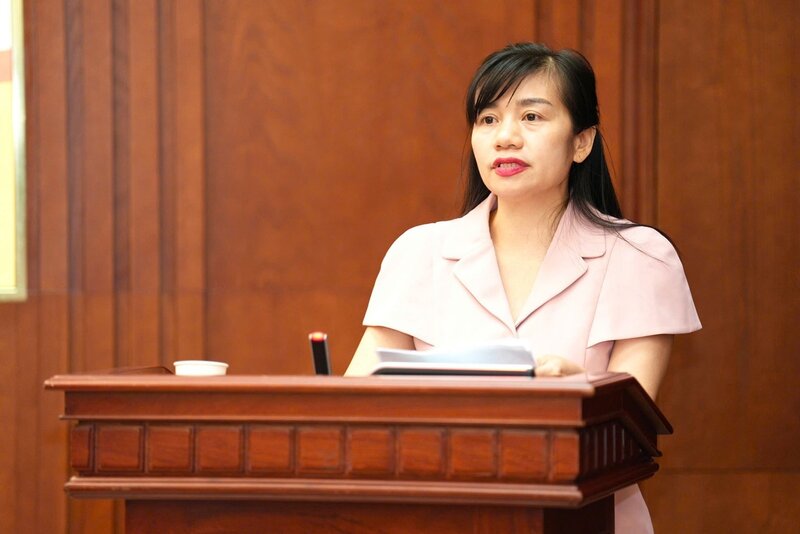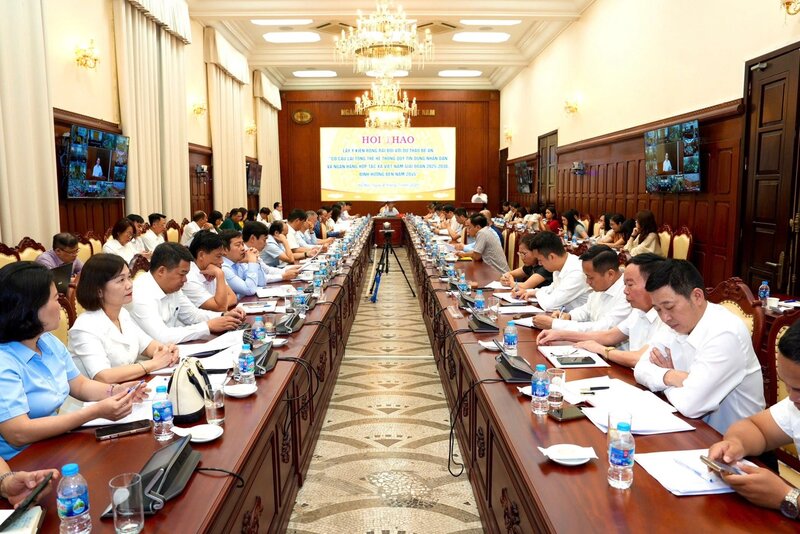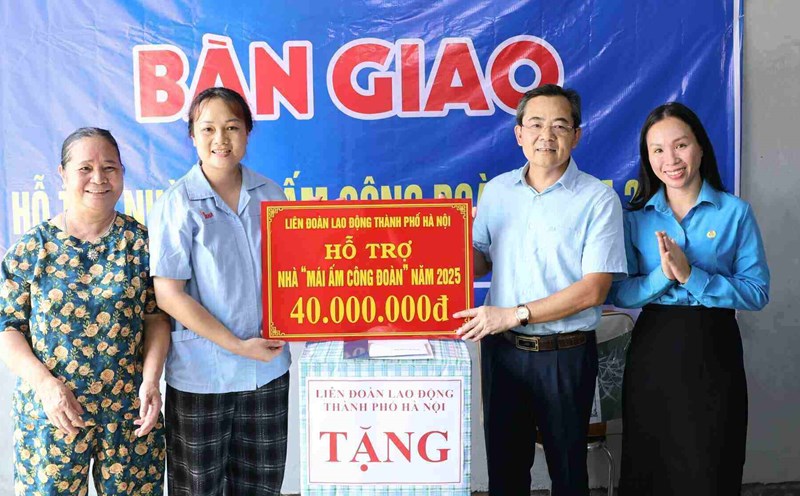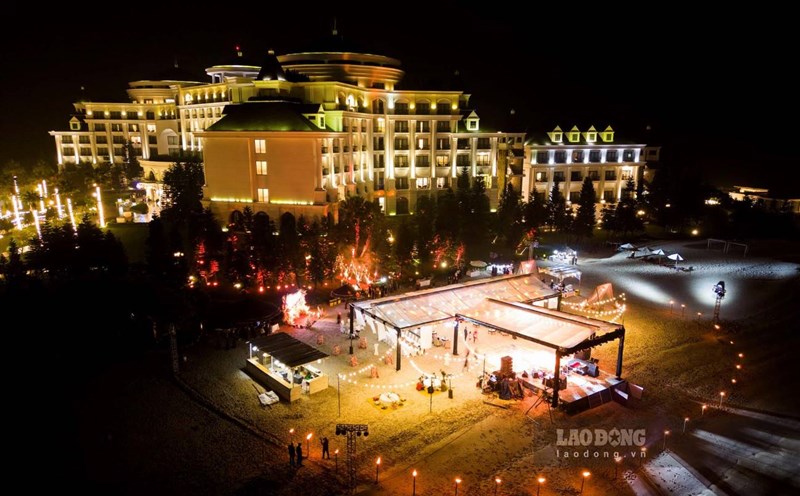On July 4, 2025, the State Bank of Vietnam (SBV) held a workshop to widely collect opinions on the Draft Project "Re cau truc the overall system of People's Credit Fund (QTDND) and Vietnam Cooperative Bank for the period 2025 - 2030, with a vision to 2045". The workshop took place in person and online at many locations, chaired by Deputy Governor of the SBV Doan Thai Son.
Speaking at the workshop, Deputy Governor Doan Thai Son emphasized that the People's Bank system was established in 1993, with the goal of mobilizing resources in the community to support each other, especially in rural, remote and isolated areas - where people have limited access to banking services. After more than 30 years of development, the QTDND has expanded its scale, improved the ability to provide financial services, making an important contribution to hunger eradication, poverty reduction, socio-economic development and ensuring social security in the locality.
According to Ms. Tran Kim Anh, Deputy Director of the General Economic Department of the Central Policy and Strategy Committee, QTDND, he affirmed his essential role in providing credit and financial services to rural people, contributing significantly to improving the lives, developing agriculture, and consolidating the great national unity bloc.
By the end of 2024, the country had 1,176 QTDND in 57 provinces and cities, with nearly 2 million members, with total assets reaching 191.5 trillion VND. The system maintains a low bad debt ratio, only 0.68%. In particular, Vietnam Cooperative Bank - a unit organization - has total assets of VND60.3 trillion, bad debt of 0.35%, showing that risk management capabilities are increasingly strengthened.

However, Deputy Governor Doan Thai Son also pointed out many shortcomings such as the linkage between the People's Capital and Cooperative Banks in some places being loose, posing potential risks, and limiting operational efficiency. He emphasized that the comprehensive restructuring of the People's Credit Union system is necessary and urgent, in line with the institutional reform policy, contributing to sustainable socio-economic development.
In recent times, the Party and the State have issued many important policies and resolutions on economic development, including the People's Army system. To summarize and evaluate the activities in the period of 2020 - 2025, the SBV has surveyed the reality in many localities, thereby developing a Draft Project on restructuring the overall system of the People's Capital and Cooperative Banks, proposing breakthrough solutions to develop the People's Capital in accordance with reality, meeting the requirements of national development.
At the workshop, Mr. Hoang Viet Dung, Deputy Director of the Department of Credit Institution System Safety, presented the main content of the Project. Representatives of units under the SBV, SBV branches, Cooperative banks, Deposit Insurance of Vietnam, and typical QTDNDs also discussed and shared the results, difficulties, and development orientations in the coming time.
Ms. Tran Kim Anh commented that in the coming period, the People's Market Management system needs to continue to maintain the principle of "mutual support", focusing on serving members, farming households, and vulnerable groups, and achieving the goal of comprehensive financial development. This is a consistent requirement of the Party, ensuring "no one is left behind". She cited lessons from successful credit cooperation models such as Norinchukin Bank (Japan), NACF (Korea), Rabobank (Netherlands), showing that only when the QTDND system is closely linked and synchronously, can it maximize its role, increase resilience, regulate capital, and control bad debts.
At the same time, the Cooperative Bank needs to promote its role as a center for capital regulation, liquidity support, risk control, technology services provision, human resource training; developing green credit, agricultural credit, credit for new rural construction. Close linkage is not only a professional requirement but also a strategic requirement, a vital requirement, creating trust with the community, forming a sustainable community financial ecosystem.

The project also sets out a plan to arrange the People's Market according to the commune-level administrative unit, aiming at "each commune has only one People's Market", implementing caution, transparency, democracy, ensuring the rights of depositors, avoiding social disruption. After the arrangement, the People's Committees need to increase capital, financial capacity, modernize governance, invest in information technology, and standardize risk management processes.
Along with that, it is necessary to encourage green credit, credit to support the transformation of high-tech agriculture, develop a circular economy, build ecological agriculture, modern rural areas; at the same time, there should be preferential interest rate policies for green projects, mechanisms to encourage voluntary mergers, support infrastructure construction, and community financial education.
Many delegates affirmed that developing the People's Credit Fund and Cooperative Bank system is not only an economic task but also an important political and social task, contributing to the successful implementation of the goal of "rich people, strong country, democracy, fairness, civilization"; building ecological agriculture, modern countryside, civilized farmers, towards sustainable development by 2030, vision 2045.











